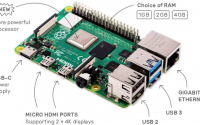Meta’s AI Ambition: Uniting Divisions & Tackling AI with Nvidia Power

Zuckerberg’s Vision for Generative AI
Mark Zuckerberg, the dynamic CEO of Meta, is doubling down on his commitment to lead the generative AI space, openly competing with giants like OpenAI. In a strategic move, Meta is combining its foundational research division, FAIR, with its Generative AI product team. Zuckerberg’s vision is clear: Meta aims to become a powerhouse in artificial general intelligence (AGI), and to achieve this, it’s amassing a computing arsenal equivalent to 600,000 Nvidia H100 GPUs.
The Race for Artificial General Intelligence
AGI, or artificial general intelligence, represents the holy grail in AI – a system capable of performing diverse tasks with human-like adaptability. Meta’s pursuit of AGI places it in direct competition with tech luminaries like Sam Altman of OpenAI and Google’s Demis Hassabis. Interestingly, Meta continues to champion the open-source model in AI development, a stance increasingly rare in an industry veering towards proprietary technologies.
Meta’s Colossal Infrastructure Investment
To fuel its AI ambitions, Meta is ramping up its infrastructure. According to Zuckerberg, by year’s end, the company will house 350,000 Nvidia H100 GPUs, with the effective power nearing 600,000 when including other GPUs. This monumental infrastructure is crucial for training large, complex AI models that require immense computational power – a playground currently dominated by cloud giants like Microsoft, Google, and Amazon.
Introducing Llama-3: The Next Big AI Breakthrough
Meta’s announcement of Llama-3, an AI model set to surpass the capabilities of OpenAI’s GPT-4, is a bold statement in the AI industry. Unlike its competitors, Meta currently doesn’t have a cloud or AI service offering, hinting at potential future expansions.
Yann LeCun’s Vision for AI’s Future
Yann LeCun, Meta’s Chief AI Scientist, echoes Zuckerberg’s ambition. He envisions AI assistants at a human level, capable of understanding, perceiving, planning, and acting in the world. This vision integrates with Meta’s immersive technology ambitions, notably in the realm of connected glasses and the metaverse concept. Interestingly, LeCun advocates for a biologically inspired AI approach, differing from the current large language model trend.
Related Posts

OpenAI announces that a bug exposed sensitive ChatGPT user data

Raspberry Pi 4: the nano-computer is full of power
